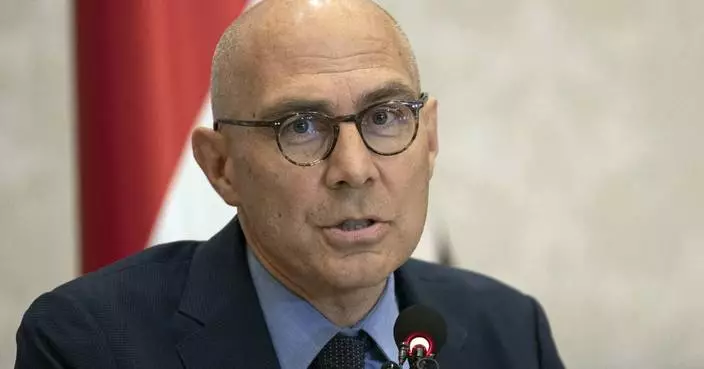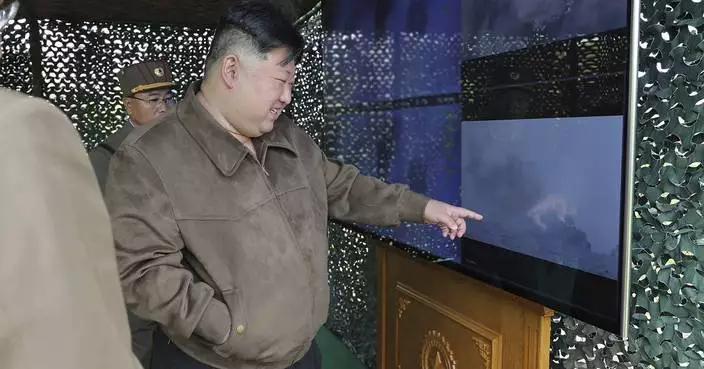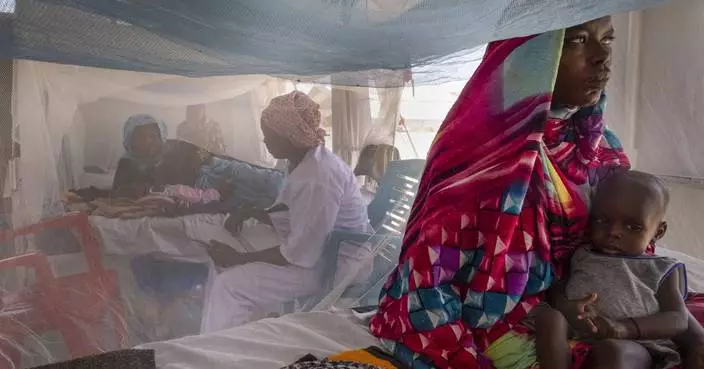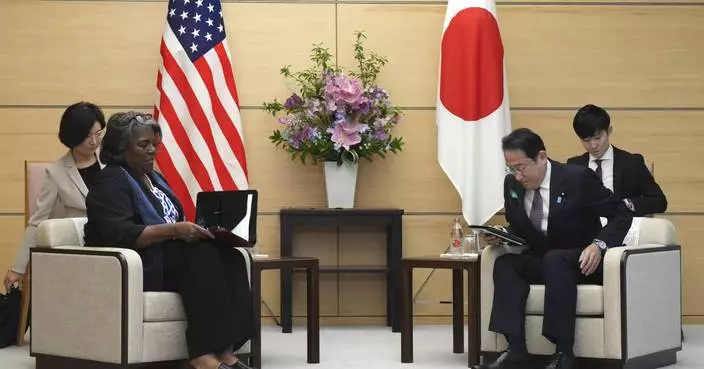Iran's U.N. ambassador warned Monday that the situation in the Persian Gulf is "very dangerous" and called talks with the U.S. impossible in the face of escalating sanctions and intimidation, while the U.S. envoy said the Trump administration's aim is to get Tehran back to negotiations.
Recent attacks on tankers and the downing of a U.S. drone played out in comments before and after a closed U.N. Security Council meeting called by the United States that provided saw sharply different views of the current situation. It took place hours after U.S. President Donald Trump signed an executive order targeting Supreme Leader Ali Khamenei and senior Iranian military figures with financial sanctions.
Iranian Ambassador Majid Takht Ravanchi called the new sanctions another indication of "U.S. hostility" toward the Iranian people. He said the Trump administration should de-escalate tensions by stopping "its military adventurism" in the region, withdrawing its "naval armada" and moving away from "economic warfare against the Iranian people."
Acting U.S. Ambassador Jonathan Cohen outlined the U.S. case for blaming Iran for tanker attacks May 12 and June 13 and for shooting down a $100 million U.S. drone in international airspace June 20. Iran denies it attacked the tankers and says the drone was in its airspace.
"Iran must understand that these attacks are unacceptable," Cohen said. "It's time for the world to join us in saying so."
Cohen reiterated that U.S. policy "remains an economic and diplomatic effort to bring Iran back to the negotiating table." He repeated his call to meet diplomacy with diplomacy, noting that Iran dismissed it two weeks ago as "inflammatory."
Ravanchi said he agrees with U.N. Secretary-General Antonio Guterres' call to de-escalate tensions in the Gulf region, but said that is up to the United States, not Iran.
He ruled out any talks with the Trump administration. "You cannot start a dialogue with someone who is threatening, who is intimidating you," he said, accusing the U.S. of trying to destroy Iran's economy.
Ravanchi urged the U.N. chief to initiate "a genuine regional dialogue on regional security ... so that we will see a new region for the generations to come."
The Security Council issued a statement condemning the latest attacks on oil tankers and urging all parties "to exercise maximum restraint and take measures and actions to reduce escalation and tension." The statement made no mention of the drone attack.
France, Germany and the United Kingdom issued a separate statement warning that increased tensions in the Gulf since the drone attack "risk miscalculation and conflict." The three countries called for "de-escalation and dialogue" and reiterated their support for the 2015 Iran nuclear deal that President Donald Trump pulled out of last year.
Responding to the U.S. administration's "maximum pressure" campaign against Iran, French Ambassador Francois Delattre told reporters: "The message of France is we're in a time where maximum pressure only makes sense with maximum diplomacy. So that's where we must go."
Russia's U.N. ambassador, Vassily Nebenzia, also referred to the U.S. desire for dialogue with Iran.
"Some of the Iranian officials recently said that you cannot have a dialogue with a knife against your throat," Nebenzia said. "What kind of dialogue if you are introducing the worst kind of sanctions ever?"
WASHINGTON (AP) — Lawyers for an American believed to be held by the Taliban for nearly two years are asking a United Nations human rights investigator to intervene, citing what they say is cruel and inhumane treatment.
Ryan Corbett was abducted Aug. 10, 2022, after returning to Afghanistan, where he and his family had been living at the time of the collapse of the U.S.-based government there a year earlier. He arrived on a valid 12-month visa to pay and train staff as part of a business venture he led aimed at promoting Afghanistan's private sector through consulting services and lending.
Corbett has since been shuttled between multiple prisons, though his lawyers say he has not been seen since last December by anyone other than the people with whom he was detained.
In a petition sent Thursday, lawyers for Corbett say that he's been threatened with physical violence and torture and has been malnourished and deprived of medical care. He's been held in solitary confinement, including in a basement cell with almost no sunlight and exercise, and his physical and mental health have significantly deteriorated, the lawyers say.
Corbett has been able to speak with his family by phone five times since his arrest, including last month. His family has not been able to see him — his only visits have been two check-ins from a third-party government — and their characterizations of his mistreatment are based on accounts from recently released prisoners who were with him and his openly dispirited tone in conversations.
“During Mr. Corbett’s most recent call with his wife and children, Mr. Corbett indicated that the mental torture and anguish have caused him to lose all hope,” said the petition, signed by the Corbett family attorneys, Ryan Fayhee and Kate Gibson.
The petition is addressed to Alice Edwards, an independent human rights investigator and the special rapporteur for torture in the Office of the High Commissioner for Human Rights at the U.N. It asks Edwards, who was appointed by the U.N. Human Rights Council, to “urgently reach out to the Taliban to secure Mr. Corbett’s immediate release and freedom from torture, as guaranteed by international law.”
"This situation is just dragging on, and I’m increasingly concerned and taking steps that I hope will make a difference and help the situation — just increasingly concerned and panicking about Ryan’s deteriorating health and physical and mental health," Corbett's wife, Anna, said in an interview. “And that was leading me to take this next step.”
The U.S. government is separately working to get Corbett home and has designated him as wrongfully detained. A State Department spokesman told reporters last month that officials had continually pressed for Corbett's release and were “using every lever we can to try to bring Ryan and these other wrongfully detained Americans home from Afghanistan."
A spokesperson for the Interior Ministry in Afghanistan said this week that it had no knowledge of Corbett's case.
Corbett, of Dansville, New York, first visited Afghanistan in 2006 and relocated there with his family in 2010, supervising several non-governmental organizations.
The family was forced to leave Afghanistan in August 2021 when the Taliban captured Kabul, but he returned the following January so that he could renew his business visa. Given the instability on the ground, the family discussed the trip and “we were all pretty nervous,” Corbett's wife said.
But after that first uneventful trip, he returned to the country in August 2022 to train and pay his staff and resume a business venture that involved consulting services, microfinance lending and evaluating international development projects.
While on a trip to the northern Jawzjan province, Corbett and a Western colleague were confronted by armed members of the Taliban and were taken first to a police station and later to an underground prison.
Anna Corbett said that when she learned her husband had been taken to a police station, she got “really scared” but that he was optimistic the situation would be quickly resolved.
That, however, did not happen, and Anna Corbett, who has three teenage children and makes regular trips to Washington, said she's trying to advocate as forcefully as she can while not letting “anxiety take over.”
“I feel like it’s the uncertainty of all of it that just is so difficult because you just don’t know what’s going to come at you — what call, what news," she said. "And I’m worried about Ryan and the effect of the trauma on him and then also on my kids, just what they’re experiencing. I've tried to protect them the best I could, but this is so difficult.”
Associated Press writer Riazat Butt in Kabul, Afghanistan, contributed to this report.
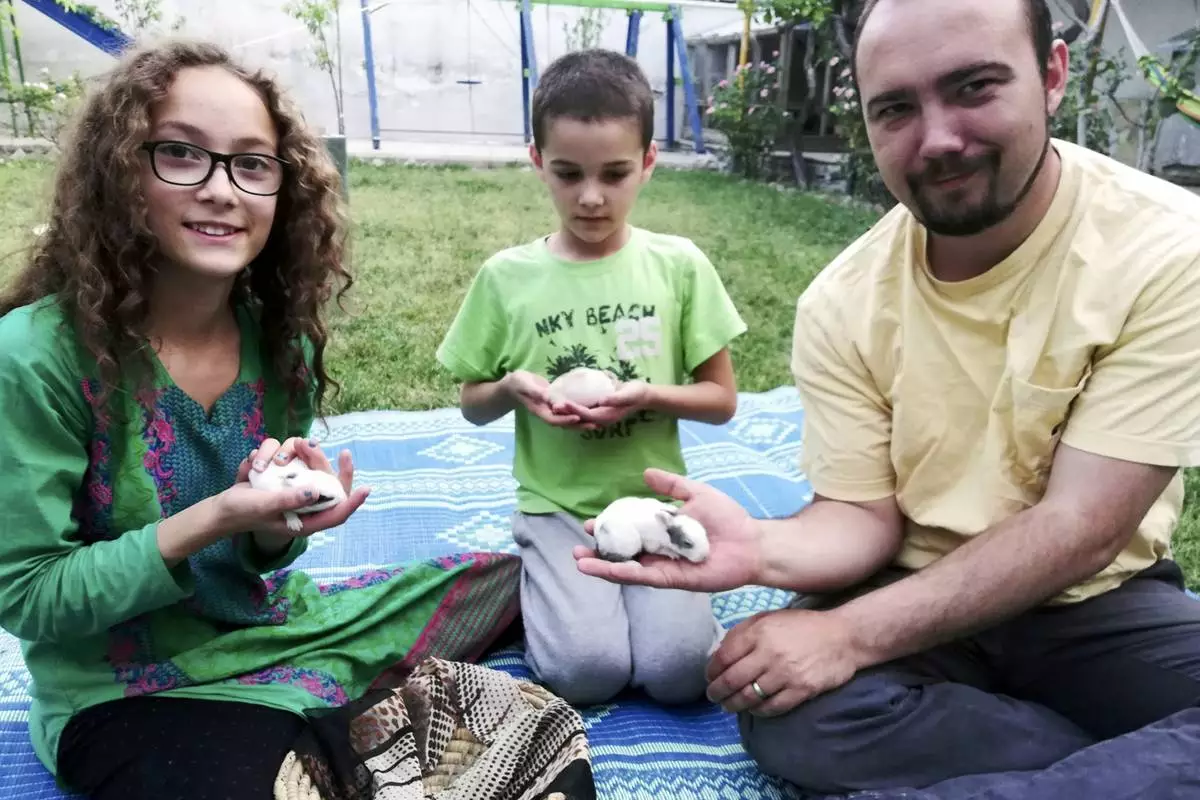
This family photo shows Ryan Corbett holding rabbits with his daughter Miriam and son Caleb in Kabul, Afghanistan in 2020. Lawyers for Corbett, believed held by the Taliban for nearly two years, are asking a United Nations human rights investigator to intervene, citing what they say is cruel and inhumane treatment. Corbett was abducted on August 10, 2022 after returning to Afghanistan, where he and his family had been living at the time of the collapse of the U.S.-based government there one year earlier, on a valid 12-month business visa to pay and train staff. (AP Photo/Anna Corbett)





